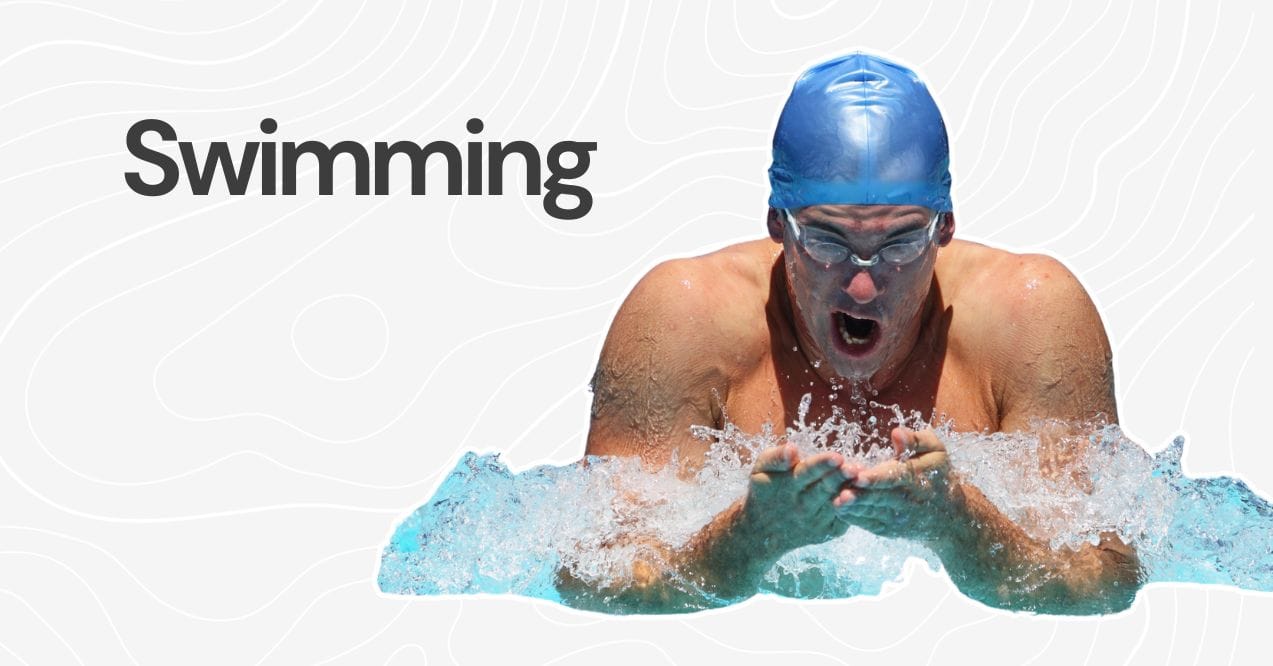Heart Awareness Month: Get Active for a Stronger Heart
February brings a special focus on heart wellness through Heart Awareness Month, making it the perfect time to explore how sports and physical activity contribute to cardiovascular health. At Trumeta, we believe in the power of active living to support overall well-being. Let’s discover how different sports can make a positive impact on your heart health journey even without any of the best supplements for endurance.
Sport and Heart Health
Physical activity creates a natural connection with your cardiovascular system. When you move, your heart becomes more efficient at delivering oxygen throughout your body. Regular exercise helps maintain healthy blood flow and supports your heart’s natural rhythm.
Research shows that people who stay active through sports and exercise tend to maintain better cardiovascular fitness. A study found that individuals who engage in regular physical activity showed improved heart function compared to those leading sedentary lifestyles.
While exercise supports heart health, some people wonder, does creatine raise blood pressure? Creatine is widely recognized for its benefits in strength and endurance, but its potential impact on blood pressure remains a topic of interest. Understanding how different supplements interact with cardiovascular function can help you make informed decisions about your fitness and wellness routine.
The beauty of exercise lies in its adaptability – you can start where you are and progress at your own pace. Your heart responds positively to consistent movement, whether you’re taking your first steps into fitness or maintaining an established routine.
Top Sports for Cardiovascular Fitness
Finding the right activity can make all the difference in maintaining a consistent exercise routine. Here are some sports that naturally support heart health:
1. Swimming

The weightless environment of water makes swimming an excellent option for cardiovascular exercise. It engages multiple muscle groups while being gentle on your joints. The horizontal position during swimming promotes optimal blood flow throughout your body, while the water’s resistance naturally strengthens your heart’s pumping action. The rhythmic breathing patterns in swimming also help develop stronger lungs, which work in harmony with your heart.
Different strokes target various aspects of cardiovascular fitness. Freestyle swimming develops steady-state endurance, while butterfly sprints build power and intensity. Even treading water provides substantial cardiovascular benefits. Start with short sessions and gradually increase your time in the pool, aiming for 20-30 minute sessions.
2. Cycling

Whether outdoors or on a stationary bike, cycling offers a customizable workout that you can adjust to your fitness level. The continuous leg movement promotes steady blood circulation while building lower body strength. Your heart rate stays elevated at a controllable level, making it ideal for building cardiovascular endurance.
The beauty of cycling lies in its versatility. You can alternate between steady rides and interval training, each providing unique cardiovascular advantages. Long, steady rides build base endurance, while hill climbs strengthen your heart’s ability to respond to increased demands. Indoor cycling allows precise control over intensity, perfect for structured training. Start with 15-20 minute sessions at a comfortable pace, then progressively increase duration and intensity.
3. Tennis

This social sport combines cardiovascular exercise with hand-eye coordination. The short bursts of movement interspersed with brief recovery periods create an ideal pattern for heart health. These intervals naturally train your heart to become more efficient at speeding up and slowing down, improving its overall function.
The side-to-side movements and quick directional changes in tennis engage your entire cardiovascular system. Each rally provides a mini workout, while the breaks between points allow for active recovery. The social aspect of tennis often makes you work harder without noticing the effort. Playing doubles can make the sport more manageable while maintaining its social benefits. Begin with 30-minute sessions, focusing on consistent rallies rather than competitive play.
4. Walking and Hiking

These natural movements form the foundation of cardiovascular fitness. A brisk walk or nature hike elevates your heart rate while allowing you to connect with your environment. The varied terrain of hiking adds extra challenges that benefit your heart, as inclines and declines create natural intervals that improve cardiovascular adaptability.
The steady-state nature of walking provides an excellent base for heart health, while hiking’s varied intensity offers additional challenges. Uneven surfaces engage more muscles and require more energy, increasing cardiovascular demands naturally. The outdoor setting also adds psychological benefits, reducing stress levels which positively impacts heart function. Start with 30-minute walks on flat terrain, then gradually introduce hills and longer durations. For hiking, begin with well-marked s before advancing to more challenging terrain.
Making Physical Activity Work for You
Success in any sport starts with finding your personal rhythm. Begin with activities that feel natural and enjoyable to you. If you enjoy what you’re doing, you’re more likely to stick with it long-term.
Consistency trumps intensity when it comes to cardiovascular benefits. Three to four sessions per week of moderate activity often yields better results than sporadic intense workouts.
Consider joining a sports club or finding a workout partner. Social connections can make exercise more enjoyable and help maintain your commitment. Many communities offer adult sports leagues designed for various skill levels.
Safety and Progress
Listen to your body as you incorporate new activities into your routine. Start slowly and increase duration or intensity gradually. Your body will adapt better to changes when they’re introduced step by step.
A good exercise session should leave you feeling energized, not exhausted. Pay attention to how your body responds during and after activity. Take rest days when needed – they’re essential for proper recovery.
What matters most is consistency over time. Small improvements add up to significant progress when maintained over weeks and months.
In Conclusion
As we celebrate Heart Awareness Month, consider this your invitation to explore new ways of staying active. Every step, stroke, or swing contributes to your heart health journey. At Trumeta, we support your path to an active lifestyle that fits your personal goals and preferences.
Choose an activity that speaks to you, start at your comfort level, and progress at your own pace. Your heart will thank you for every moment of movement you add to your day.
Advertisement. This site offers health, wellness, fitness and nutritional information and is designed for educational purposes only. You should not rely on this information as a substitute for, nor does it replace, professional medical advice, diagnosis, or treatment. If you have any concerns or questions about your health, you should always consult with a physician or other health-care professional. Do not disregard, avoid or delay obtaining medical or health related advice from your health-care professional because of something you may have read on this site. The use of any information provided on this site is solely at your own risk.








